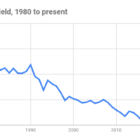
10 Nov 2025
Why is it that lockdown, introduced as a measure to combat the Covid19 pandemic, is such a non-subject? Is there anyone who still thinks it was a good idea? As a reminder; from a Parliamentary website, recording the hundreds of new laws that needed to be passed….. First national lockdown (March to June 2020) All “non-essential” high street businesses were closed and people were ordered to stay at home, permitted to leave for essential purposes only, such as buying food or for medical reasons.. Minimal lockdown restrictions (July to September 2020) Reimposing restrictions (September to October 2020) The Government rationalised local restrictions by introducing a “three tier system”. At first, most of the country was placed in the least restrictive tier one, which had similar restrictions to the previous national rules. As time went on, more of the country was placed in the higher two tiers. Second national lockdown (November 2020) On 5 November, national restrictions were reintroduced in England. During the second national lockdown, non-essential high street businesses were closed, and people were prohibited from meeting those not in their “support bubble” inside. People could leave home to meet one person from outside their support bubble outdoors. Reintroducing a tiered system (December 2020) On 2 December, the tiered system was reintroduced with modifications. On 19 December, the Prime Minister announced that a fourth tier would be introduced. The tier four rules were like those imposed during the second national lockdown. On 30 December, after the first review of tiers under the new system, around 75% of the country was placed under tier four restrictions. Third national lockdown (January to March 2021) Following concerns that the four-tier system was not containing the spread of the Alpha variant, national restrictions were reintroduced for a third time on 6 January. The rules during the third lockdown were more like those in the first lockdown. People were once again told to stay at home. However, people could still form support bubbles (if eligible) and some gatherings were exempted from the gatherings ban (for example, religious services and some small weddings were permitted). Leaving lockdown (March to July 2021) On 8 March 2021, England began a phased exit...

























